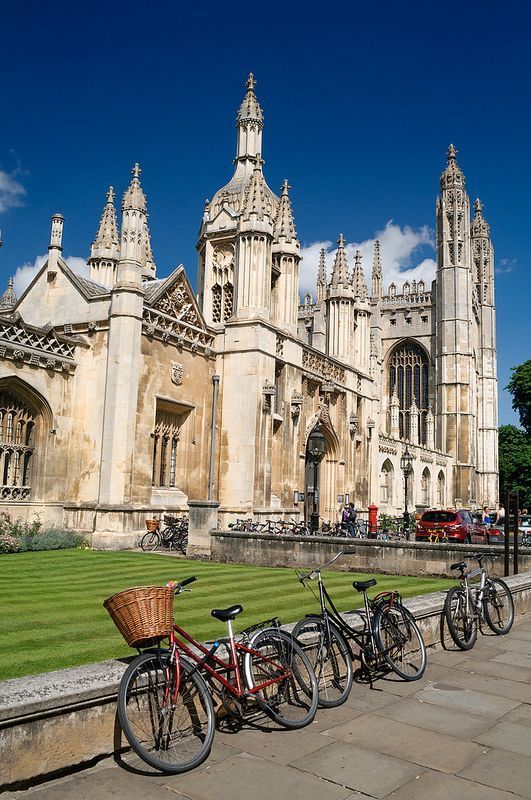University of Cambridge: A Legacy of Excellence and Innovation
The University of Cambridge is one of the most prestigious and influential educational institutions in the world. Located in the heart of the United Kingdom, Cambridge has been a symbol of academic excellence for over 800 years. With its rich history, remarkable achievements, and continued contributions to global progress, Cambridge stands as a beacon of knowledge and inspiration.
In this article, we explore the history, daily life, significance, and societal impact of the University of Cambridge. We will also answer some frequently asked questions to give you a deeper understanding of what makes Cambridge a unique and essential institution in the world of higher education.
History of the University of Cambridge
Founded in 1209, the University of Cambridge was established when a group of scholars left Oxford University following a dispute. Since its inception, Cambridge has been committed to the pursuit of knowledge, with a particular focus on the sciences, humanities, and social sciences. Over the centuries, Cambridge has produced some of the world’s most brilliant minds, from mathematicians to political thinkers to Nobel laureates.
The university’s long history is marked by innovation and discovery. The work of its researchers has changed the world, with groundbreaking contributions to fields such as physics, chemistry, economics, medicine, and technology. Many of the world’s greatest scientific minds, including Sir Isaac Newton, Charles Darwin, and Stephen Hawking, have been affiliated with the university.
Key Facts About the University of Cambridge
- Location: Cambridge, England, a city renowned for its academic and historical significance, provides a vibrant environment for students and scholars alike.
- Academic Reputation: Cambridge consistently ranks among the top universities globally, particularly in the fields of science, mathematics, engineering, and the humanities.
- Research and Innovation: Cambridge is a world leader in scientific research and technological development, fostering an environment of innovation that addresses global challenges.
- Notable Alumni: The university’s alumni include famous figures such as Sir Isaac Newton, Charles Darwin, Alan Turing, and current personalities like author John Cleese and physicist Stephen Hawking.
- Global Reach: With students from all over the world, Cambridge maintains an international presence, contributing to global research collaborations and diplomatic efforts.
Daily Life at the University of Cambridge
Cambridge students experience a rigorous yet enriching academic life. The university’s colleges—each with its own unique traditions and culture—offer a blend of academic challenge, social opportunities, and extracurricular activities. Here’s what daily life at Cambridge involves:
- Academics: The academic structure at Cambridge is centered on small-group teaching, known as “supervisions,” where students engage in in-depth discussions with their professors. Students are expected to complete extensive reading and coursework, which is evaluated through examinations and written essays.
- Tutorials and Supervisions: One of the distinguishing features of Cambridge is its supervision system. Students meet regularly with their supervisors to discuss topics in their chosen field, ensuring personalized attention and deep engagement with the material.
- Campus Life: Life outside the classroom is just as enriching. Cambridge offers a variety of clubs, societies, and sports teams. Whether students are interested in drama, music, politics, or sports, there are ample opportunities to pursue extracurricular passions and develop new skills.
- College System: The University of Cambridge is made up of 31 autonomous colleges. Each college has its own community, and students are part of a college-based environment in addition to the university. This structure fosters camaraderie, offering students a sense of belonging while still being part of a larger academic institution.
- Cambridge Traditions: Cambridge has a rich history, and students are often involved in time-honored traditions such as formal hall dinners, May Ball celebrations, and rowing competitions (notably the annual Boat Race against Oxford University).
Significance of the University of Cambridge to Society
The University of Cambridge’s contributions to society extend far beyond education. Its research has led to innovations that have reshaped industries, improved public health, and changed the course of history. Below are some of the ways Cambridge has impacted society:
- Scientific Advancements: Cambridge is renowned for its contributions to the scientific community. Sir Isaac Newton’s work on gravity and motion laid the foundation for modern physics, while Charles Darwin’s theory of evolution revolutionized biology. More recently, Cambridge scientists played pivotal roles in the development of the first recombinant DNA technology and the discovery of the structure of DNA.
- Technological Innovation: The university has been instrumental in the development of cutting-edge technologies, including the creation of the first-ever computer (the EDSAC), contributions to artificial intelligence, and work on medical devices such as insulin pumps.
- Global Education: Cambridge continues to attract the best and brightest students from around the world. Its diverse student body promotes a global exchange of ideas, contributing to the development of solutions for pressing global challenges.
- Social Impact: Beyond scientific breakthroughs, Cambridge has fostered leaders in politics, business, and the arts. Alumni include several British prime ministers, Nobel Peace Prize winners, and cultural icons who continue to influence the world.
- Collaborative Research: Cambridge plays a key role in fostering collaborations between universities, governments, and private industries, helping to advance research in areas such as sustainable energy, public health, and global security.
FAQs About the University of Cambridge
- What is the admission process for Cambridge? Admission to Cambridge is highly competitive. Applicants must demonstrate excellent academic performance, passion for their chosen field, and strong personal statements. International students may also need to provide standardized test scores (like the SAT or ACT).
- How difficult is it to get into Cambridge? Cambridge is one of the most selective universities in the world, with an acceptance rate of around 20%. Applicants need to excel academically, have strong extracurricular achievements, and undergo rigorous interviews.
- What programs are offered at Cambridge? Cambridge offers undergraduate and postgraduate programs in a wide range of subjects, including the sciences, humanities, engineering, business, and social sciences.
- What is the cost of studying at Cambridge? While Cambridge offers numerous scholarships and financial aid options, the cost of studying depends on the program and the student’s background. International students typically face higher tuition fees than domestic students.
- What is the student experience like at Cambridge? Cambridge provides a unique student experience, combining rigorous academics with a rich cultural and social life. Students have access to world-class facilities, engage in research from their first year, and participate in numerous extracurricular activities.
Conclusion: The Enduring Legacy of Cambridge
The University of Cambridge is more than just an educational institution—it is a global leader in research, innovation, and societal progress. Its history, academic rigor, and contributions to science and society continue to inspire generations of students and researchers around the world.
With its legacy of excellence, Cambridge remains a symbol of intellectual achievement and a hub for future global leaders. Whether in the fields of technology, politics, business, or culture, Cambridge alumni continue to shape the world in meaningful ways, proving that the university’s impact reaches far beyond the classroom.
By fostering a diverse and collaborative community of thinkers and innovators, the University of Cambridge ensures that its influence will continue for centuries to come.
Final Thought: For those seeking to make a lasting impact on society and the world at large, Cambridge represents the ideal environment for growth, knowledge, and inspiration.











Explore detailed information about the Audemars Piguet Royal Oak Offshore 15710ST via this platform , including pricing insights ranging from $34,566 to $36,200 for stainless steel models.
The 42mm timepiece boasts a robust design with automatic movement and rugged aesthetics, crafted in rose gold .
https://ap15710st.superpodium.com
Compare secondary market data , where limited editions reach up to $750,000 , alongside pre-owned listings from the 1970s.
Request real-time updates on availability, specifications, and investment returns , with trend reports for informed decisions.